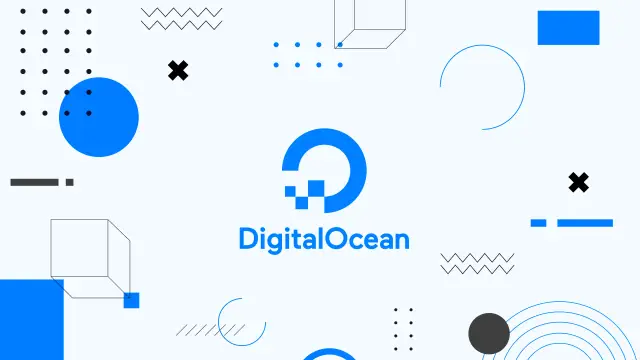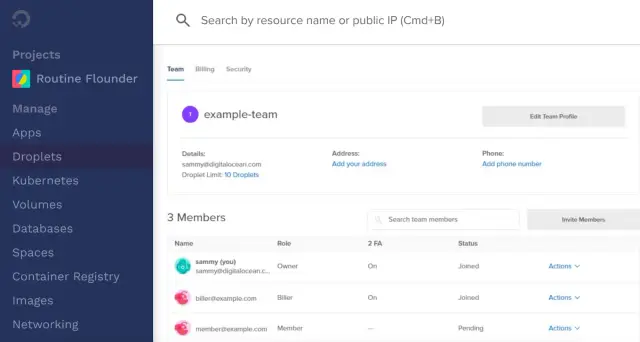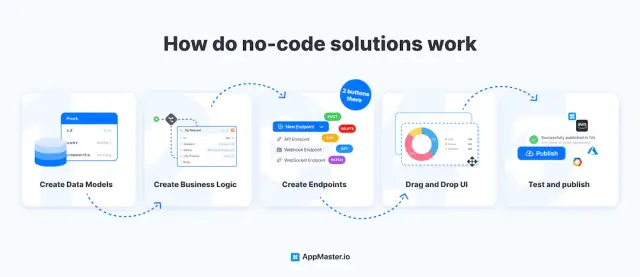What is DigitalOcean, and Why Should You Consider Using It?
Learn why DigitalOcean is the best choice for your cloud hosting needs. Discover its key features and benefits, and consider using it for your business.

As the demand for cloud computing continues to grow, businesses and developers are constantly searching for reliable, scalable, and affordable cloud hosting solutions. DigitalOcean is one such solution that has been gaining popularity in recent years.
DigitalOcean is a cloud computing platform that provides users with virtual servers, storage, and networking resources to build and host web applications. It has quickly established itself as a leading cloud hosting service provider, offering a range of features and benefits that make it an attractive option for businesses and developers of all sizes.
In this article, we'll take a closer look at what DigitalOcean is, its key features, and why you should consider using it for your cloud hosting needs. We'll explore its ease of use, flexibility, scalability, and affordability and focus on security and reliability. By the end of this article, you'll better understand DigitalOcean and why it's an excellent choice for your cloud hosting needs.
What is DigitalOcean?
DigitalOcean is a leading cloud infrastructure provider offering developers an easy-to-use, flexible, and scalable platform for deploying, managing, and scaling applications. Established in 2011 by Ben Uretsky, Moisey Uretsky, Mitch Wainer, Jeff Carr, and Alec Hartman, DigitalOcean focuses on simplifying the complexities of web infrastructure and offering an intuitive user experience. It's core product suite includes virtual servers (Droplets), managed Kubernetes (DigitalOcean Kubernetes), object storage (Spaces), and managed databases (DigitalOcean Managed Databases), among other services.

DigitalOcean's appeal lies in its transparent pricing, developer-friendly interface, and extensive documentation and tutorials, which cater to startups, small and medium-sized businesses, and individual developers. DigitalOcean has established itself as a strong competitor in the cloud services market by providing cost-effective, high-performance, and reliable cloud infrastructure.
What is DigitalOcean used for?
DigitalOcean is a versatile cloud platform that serves various purposes in software development, catering to developers, startups, and small to medium-sized businesses. Its primary use cases include web application hosting, development and testing environments, and data storage and processing. Developers use DigitalOcean's virtual servers (Droplets) to deploy and scale web applications, APIs, and microservices, leveraging its global data center network to ensure low latency and high availability. Additionally, DigitalOcean's managed Kubernetes service enables the orchestration of containerized applications, streamlining deployment, scaling, and management.
Developers can also take advantage of DigitalOcean's Spaces for storing and serving static assets, such as images, videos, and documents while using the Managed Databases service to offload the complexities of database administration. Furthermore, DigitalOcean provides a platform for creating development and testing environments that can be quickly spun up and torn down, facilitating agile development and continuous integration workflows. DigitalOcean offers a comprehensive service suite that empowers developers to build, deploy, and scale applications efficiently and effectively.
What is a Droplet in DigitalOcean?
A Droplet in DigitalOcean refers to a virtual private server (VPS) that runs on the company's cloud infrastructure. Droplets are essentially virtualized instances that provide users with dedicated computing resources, including CPU, RAM, and storage, to run their applications or host their websites. DigitalOcean's Droplets are designed with simplicity, scalability, and affordability, making them an appealing choice for developers and businesses of various sizes.
Depending on their specific requirements, users can choose from various Droplet configurations, such as Standard, General Purpose, CPU-Optimized, and Memory-Optimized. Each configuration offers a different balance of resources to cater to different use cases, such as running compute-intensive applications, hosting databases, or serving web traffic. Additionally, Droplets can be created using pre-configured images that include popular operating systems, applications, or development stacks, simplifying the setup process and allowing for rapid deployment. DigitalOcean also enables users to scale their Droplets vertically by upgrading to a larger plan or horizontally by adding more instances, facilitating the growth and flexibility of their applications.
Why users love DigitalOcean?
Users love DigitalOcean for several reasons that set it apart from other cloud providers:
- Simplicity: DigitalOcean's intuitive interface and streamlined user experience make it easy for developers to navigate and manage their infrastructure. The platform offers a minimal learning curve, making it accessible for both new and experienced users.
- Transparent pricing: DigitalOcean is known for its straightforward, cost-effective pricing, allowing users to predict expenses without hidden fees or complex calculations. This transparency appeals to startups, small and medium-sized businesses, and individual developers who require budget predictability.
- Developer focus: DigitalOcean is built with developers in mind, providing extensive documentation, tutorials, and an active community that fosters learning and collaboration. These resources empower developers to expand their skill sets and solve problems more efficiently.
- Performance and reliability: DigitalOcean's infrastructure delivers high-performance and reliable services, ensuring that applications and websites run smoothly. The platform's solid-state drive (SSD) storage and global data center network contribute to low latency and high availability for users worldwide.
- Scalability: DigitalOcean's services are designed to grow with users' needs. Developers can easily scale their applications vertically or horizontally while leveraging additional services like Managed Databases and Kubernetes for even more flexibility.
- Customer support: DigitalOcean offers responsive and knowledgeable customer support, with various channels for users to seek assistance, including a ticketing system, community forums, and social media.
- Pre-configured images: DigitalOcean provides pre-built images, such as operating systems, development stacks, and applications, enabling users to deploy Droplets tailored to their specific requirements quickly.
These factors combine to create a developer-friendly, cost-effective, and reliable cloud infrastructure provider that many users have grown to appreciate and trust.
DigitalOcean cons
While DigitalOcean is a popular choice for many developers and businesses, it is essential to consider some of its limitations or drawbacks:
- Limited advanced features: Compared to larger cloud providers like AWS, Azure, or Google Cloud, DigitalOcean may offer a different breadth of advanced features or services, which can be a constraint for enterprises with complex infrastructure needs.
- Smaller ecosystem: DigitalOcean's marketplace and integration options may not be as extensive as those offered by more prominent cloud providers, potentially limiting the available third-party tools and services for users.
- No built-in DDoS protection: Unlike some competitors, DigitalOcean does not provide built-in distributed denial-of-service (DDoS) protection, which could leave users more vulnerable to attacks.
- No service level agreement (SLA) for object storage: DigitalOcean's object storage service, Spaces, does not come with an SLA, unlike similar offerings from other cloud providers. This lack of an SLA may concern users who require guaranteed uptime and performance for their storage needs.
- No native database backup: DigitalOcean's Managed Databases service does not offer a built-in backup solution, requiring users to create and manage their database backups manually.
- Limited geographical coverage: Although DigitalOcean's global data center network is expanding, its reach is still limited compared to larger cloud providers. This limitation may impact users who require data centers in specific regions that DigitalOcean does not currently serve.
- Support options: While DigitalOcean offers responsive customer support, their basic support tier may be slower to respond than some competitors. Users who require faster support response times must opt for a paid support plan.
These cons should be considered when evaluating DigitalOcean as a potential cloud infrastructure provider, particularly for businesses with specialized or advanced requirements.
DigitalOcean pros
DigitalOcean offers several advantages that make it a popular choice among developers and small to medium-sized businesses:
- Ease of use: DigitalOcean's user-friendly interface and intuitive design simplify cloud infrastructure management, making it easy for developers of all experience levels to navigate and control their resources.
- Developer-focused: The platform is tailored to developers, offering extensive documentation, tutorials, and an active community that promotes learning and collaboration. This focus on developer needs helps users expand their skills and solve problems efficiently.
- Transparent pricing: DigitalOcean is known for its straightforward and competitive pricing structure, with no hidden fees or complex calculations. This transparency appeals to those who require predictable costs for their cloud infrastructure.
- Performance and reliability: DigitalOcean provides high-performance, reliable services, ensuring that applications and websites run smoothly. The use of solid-state drive (SSD) storage and a global data center network contribute to low latency and high availability for users around the world.
- Scalability: DigitalOcean's services are designed to scale with users' needs, allowing applications to grow vertically or horizontally. The platform's additional services, such as Managed Databases and Kubernetes, provide even more flexibility and scalability.
- Pre-configured images: Users can quickly deploy Droplets using pre-built images, including popular operating systems, applications, and development stacks. This feature accelerates the setup process and simplifies infrastructure management.
- Customer support: DigitalOcean offers knowledgeable and responsive customer support through various channels, including a ticketing system, community forums, and social media.
- Effortless Deployment of AppMaster-Generated Apps: DigitalOcean's infrastructure supports the effortless deployment and hosting of applications created using AppMaster. This compatibility enables users to leverage DigitalOcean's performance, scalability, and reliability to provide an optimal user experience for their AppMaster-generated applications. The synergy between the two platforms simplifies the development process, allowing users to concentrate on building and refining their applications.

These pros make DigitalOcean an appealing choice for developers and businesses seeking a developer-friendly, cost-effective, and reliable cloud infrastructure provider.
DigitalOcean vs. Other Cloud Providers
Several factors make each provider distinct when comparing DigitalOcean to other cloud providers, such as Amazon Web Services (AWS), Microsoft Azure, and Google Cloud Platform (GCP). DigitalOcean stands out for its simplicity, developer-centric approach, and transparent pricing. Its user-friendly interface and extensive documentation make it an attractive choice for startups, small and medium-sized businesses, and individual developers who seek a straightforward cloud infrastructure platform. Moreover, DigitalOcean's competitive and predictable pricing structure caters to those with budget constraints or a preference for cost transparency.
However, larger cloud providers like AWS, Azure, and GCP offer a broader range of services and more advanced features, which may be crucial for enterprises with complex infrastructure requirements. These providers also have a more extensive ecosystem of third-party integrations, partnerships, and a global network of data centers, which can benefit organizations operating at a larger scale or with specific regional needs.
The choice between DigitalOcean and other cloud providers largely depends on the user's needs, resources, and preferences. DigitalOcean excels in simplicity, developer-friendliness, and cost transparency. At the same time, larger cloud providers offer a wider range of services, advanced features, and extensive ecosystems tailored to more complex or enterprise-level requirements.
Conclusion
In conclusion, DigitalOcean has established itself as a popular cloud infrastructure provider through its simplicity, developer-centric approach, and transparent pricing. Its user-friendly interface, robust documentation, and tailored services cater to startups, small and medium-sized businesses, and individual developers seeking a straightforward, cost-effective, and reliable platform.
While DigitalOcean may offer different advanced features and an extensive ecosystem than larger providers like AWS, Azure, and GCP, it delivers a compelling alternative for users who prioritize ease of use and budget predictability. By understanding the unique offerings of each cloud provider, developers and businesses can make informed decisions when selecting the right platform to support their applications and infrastructure needs, ensuring a successful and sustainable cloud experience.





